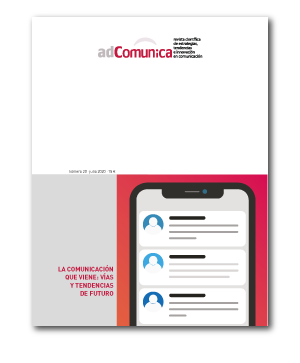Tendencia y narrativas de fact-checking en Twitter. Códigos de verificación y fake news en los disturbios del Procés (14-O)
##plugins.themes.bootstrap3.article.main##
Resum
Un entorno digital dominado por la inteligencia artificial, la influencia de los líderes políticos, el activismo de las audiencias y la eclosión de desinformación y fake news definen los códigos de la agenda. Se dibuja además un escenario en el que el papel de las agencias de fact-checking como propulsoras o detractoras de lo fake está cuestionado. En un contexto marcado por la convocatoria continuada de elecciones generales en España y por el conflicto de la Independencia de Cataluña se publica la Sentencia del Tribunal Supremo sobre los juicios del Procés (14-O). Una cadena de movilizaciones ciudadanas inunda la red. El objetivo general del estudio es conocer en Twitter las fake news sobre los disturbios catalanes, las estrategias de verificación en las agencias seleccionadas (@malditobulo, @Newtral y @veri_fi_cat), el nivel de impacto y la reacción de los públicos. Aplicamos una metodología triangular de análisis de contenido comparado y sobre una muestra general de tweets (n1=4500) se analiza el tratamiento de los bulos detectados por los fact-checkers (n2=62). Los resultados confirman que la autoría de las noticias falsas corresponde a cuentas de particulares y que las estrategias de fact-checking pueden favorecer más la viralización que el desmentido.
Descàrregues
##plugins.themes.bootstrap3.article.details##
1. Política propuesta para Revistas que ofrecen Acceso Abierto
Los autores que publican en esta revista están de acuerdo con los siguientes términos:
- Los autores conservan los derechos de autor y garantizan a la revista el derecho de ser la primera publicación del trabajo al igual que licenciado bajo la licencia CC BY-SA, que permite a otros compartir el trabajo con un reconocimiento de la autoría del trabajo y la publicación inicial en esta revista.
- Los autores pueden establecer por separado acuerdos adicionales para la distribución no exclusiva de la versión de la obra publicada en la revista (por ejemplo, situarlo en un repositorio institucional o publicarlo en un libro), con un reconocimiento de su publicación inicial en esta revista.


